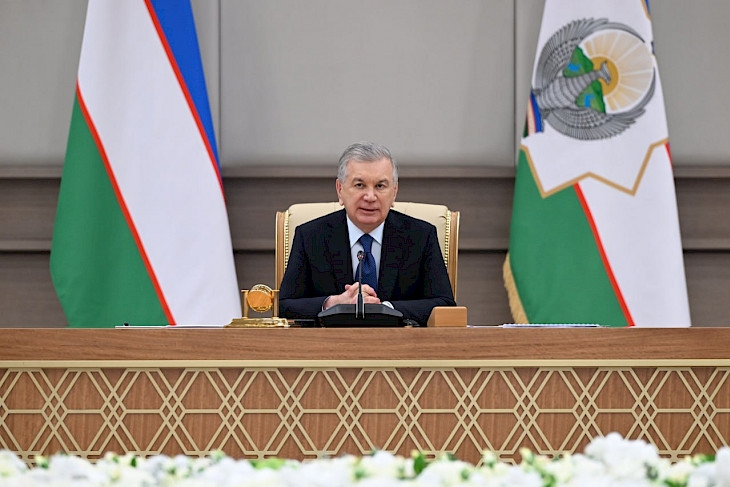During a presidential meeting, it was disclosed that 50 districts in Uzbekistan attracted investments exceeding $100 million each over the past year, a significant increase compared to just 11 districts achieving this milestone in 2023. However, it was also noted that in 2024, no major economic players — such as France, Italy, Spain, Hungary, Japan, or Malaysia — contributed investments surpassing $100 million, KunUz reported.
Uzbekistan’s Gross Domestic Product (GDP) grew by 6.5% in 2024, reaching $115 billion. This information was disclosed during a selector meeting chaired by the president, which focused on investment-related issues.
It was highlighted that foreign investments increased 1.6 times, amounting to $34.9 billion. A total of 242 large- and medium-scale projects, valued at $10 billion, were successfully launched. Meanwhile, exports reached a record-high figure of $27 billion for the first time.
In terms of regional investments, 50 districts received over $100 million each in funding last year, compared to just 11 such districts in 2023. Notably, Davlatobod, Yangi Namangan, Mirzo Ulugbek, Chilanzar, and Shaykhontohur districts, as well as the cities of Namangan and Samarkand, recorded investments surpassing $300 million.
The report highlighted exceptional performance in sectors such as mining, oil and gas, chemicals, and agriculture, where targets were exceeded by twofold.
However, concerns were raised about underperformance in some areas. Despite favorable conditions, the textile sector’s investment target fell short by $17 million. Additionally, investments decreased twofold in "Uztransgaz" and "Uzmetkombinat," while "Uzsuvtaminot" saw a 20% decline.
Leaders of these organizations were warned that their performance would be formally reviewed if improvements are not made by the first quarter of 2025.
The Ministry of Ecology, Ministry of Agriculture, State Asset Management Agency, Pharmaceutical Agency, and Forestry Agency were flagged for failing to meet even 25% of their grant-attraction targets. Similarly, the Ministries of Construction, Transport, Culture, and the Tourism Committee were criticized for securing grants of less than $10 million.
Overall, the investment and grant-attraction efforts of key ministries — including Preschool and School Education, Healthcare, Transport, Sports, Higher Education, Culture, Ecology, Agriculture, Digital Technologies, and Construction — were described as far below their potential.
The report concluded by highlighting that no investments exceeding $100 million were received last year from high-potential countries such as France, Japan, Italy, Hungary, Malaysia, or Spain.
